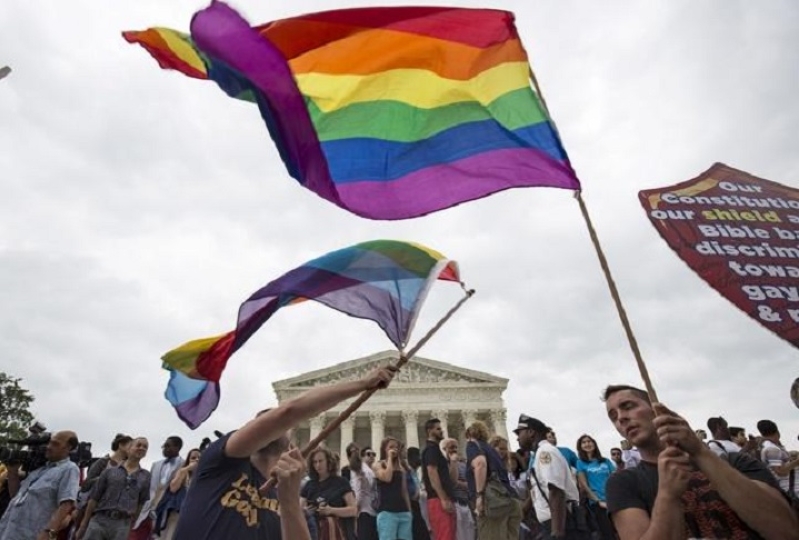
Many evangelical leaders are saying the US presidential election happening in November is a crucial one, and religious liberty is one of the issues that could greatly affect Christians.
Evangelist Franklin Graham believes the election is the “most critical in our lifetime,” and he encourages believers to study the candidates’ platforms, pray and go out and vote.
“I believe the election coming up in November is the most critical in our lifetime—so much hangs in the balance,” Graham said on Facebook last month.
Tony Perkins, president of Family Research Council, said the country’s survival depends so much on the future president’s fundamental beliefs.
“America is not going to cease to exist as the land mass that it is. What is at stake is the republic as we know it, freedoms that we have enjoyed,” Perkins said in an issue of ‘Decision,’ magazine of the Billy Graham Evangelistic Association.
Religious freedom is among those that have suffered attacks in recent years, Perkins said.
“It’s been open. It’s been frontal. It’s been unrelenting. … The weight of the government is being used to quarantine faith within the four walls of the church, and that is not religious freedom,” he said.
With the Supreme Court’s landmark ruling that legalized same-sex marriage in June 2015, a number of other issues cascaded against Christians’ basic beliefs, such as the definition of gender. Central to this are the bathroom wars and the question of whether transgender people should use public restrooms and locker rooms corresponding to the gender they identify with.
North Carolina has been the hotbed of the transgender bathroom use controversy after passing House Bill 2, a law that requires transgender people to use bathrooms according to the sex specified in their birth certificate, not their gender identity.
The Department of Justice threatened to sue the state if it would not denounce HB2. In response, North Carolina filed a lawsuit seeking to determine if HB2 is discriminatory. The Department of Justice then filed a lawsuit against North Carolina, seeking for HB2’s suspension.
Complicating the bathroom wars even further, the federal government issued a directive that ordered all public schools in the U.S. to open their gender-specific restrooms and locker rooms to transgender students.
North Carolina Gov. Pat McCrory said in a recent interview that the bathroom wars is not really about the question of which bathroom to use but about the definition of gender.
“HB2 is actually relevant now because the federal government has stepped in and ordered the definition of gender to be based upon expression and identity,” McCrory said.
This same problem is attacking the strength of marriages in the country. James Dobson, psychologist and founder of Focus on the Family, said the sexual revolution has weakened married couples’ commitment to honor their marriage vows.
“The sexual revolution weakened the exclusivity and commitment required for lifelong marriage. Spiritual apathy and apostasy have also been major contributors. America no longer lives by an eternal moral code given to us by the Word of God,” Dobson said to Decision magazine.
"The feminist movement and the legalization of abortion have also affected marriages in a negative way, effectively weakening American families, which are the basic units of society.
“The radical feminist movement, based on hostility toward men, weakened the marital bond. Related to it was, and is, the legalization of abortion through nine months of pregnancy,” Dobson said. “Raising children is what this ancient institution is all about. And, finally, the judiciary has created politically correct interpretations of the law that are destroying the traditional family unit.”
David Jeremiah, senior pastor of Shadow Mountain Community Church, said the outcome of the 2016 presidential election could result in either of two consequences: an America where believers can exercise their religious freedom inside and outside their churches, or an America where religious freedom for believers is oppressed.
And all these things hinge on a very important entity: the Supreme Court.
“The next president will select between two and four justices who will reign over the cultural issues of our nation for the next 30 years,” Jeremiah said. “The average Supreme Court judge serves 26 years. In the next 30 years, what happens in this election is going to have an incredible impact on my children and grandchildren. And the impact will be most likely felt more because of what happens in the Supreme Court than anything else that happens in the government.”
The pastor said neither Donald Trump nor Hillary Clinton is a good example for evangelical Christians, but the fact that the next president will appoint justices whose decisions will impact the nation for decades should cause believers to take the election seriously.
Graham also emphasized the importance of considering the future of the Supreme Court in voting the next president. He said scandals that arise about the two candidates are simply “news for the moment,” but who they nominate for the Supreme Court “will remake the fabric of our society” and affect the future generations.
“The two candidates have very different visions for the future of America,” Graham said on Facebook. “The most important issue of this election is the Supreme Court. That impacts everything.”






